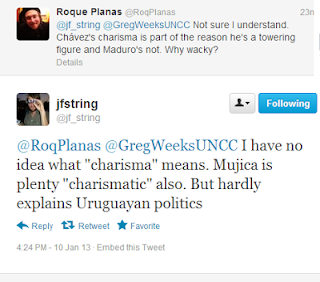Pat McCrory's Cuban Model
Manso highlighted that the ETP's main objective is to train a qualified labor force and to guarantee work to students immediately after graduating.
He said the ministry is working on a study plan that includes reducing curriculum to only the relevant subjects in each specialty.
From NC Governor Pat McCrory:
On the show, McCrory said “educational elite” had taken over, offering courses that have no path to jobs. He said he instructed his staff Monday to draft legislation that could alter the state money that universities and community colleges receive “not based upon how many butts in seats but how many of those butts can get jobs.”The de-emphasis of non-technical disciplines (McCrory even made fun of languages) has long been a hallmark of Cuban education. One problem the Cuban government has with social sciences and humanities is that they create people who challenge conventional wisdom and authority.
Read more...


